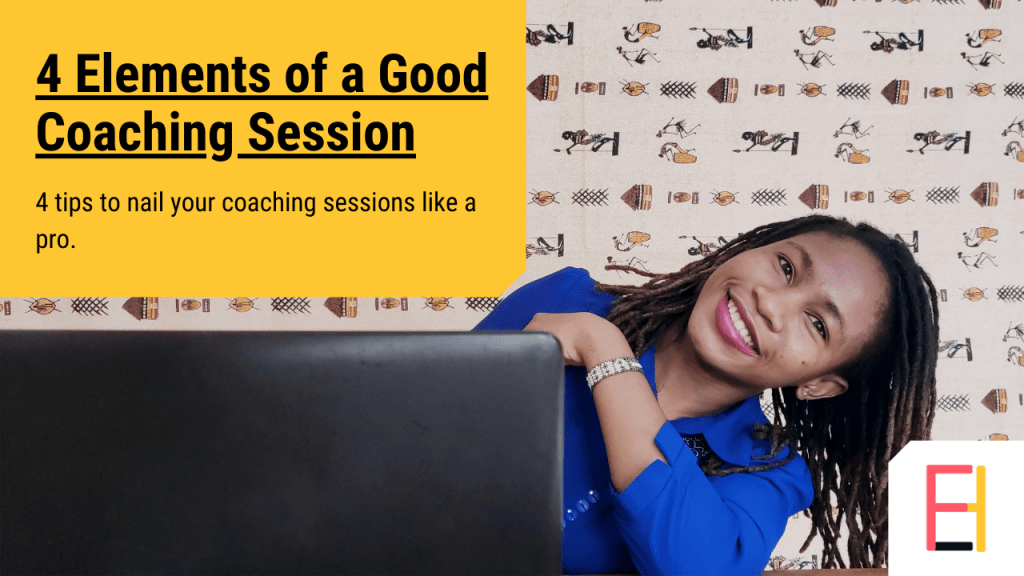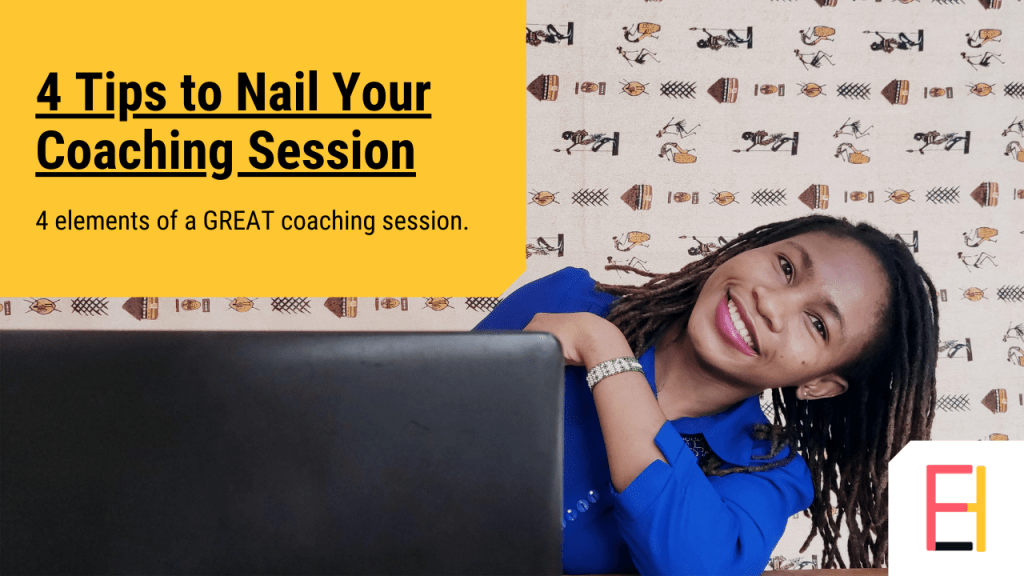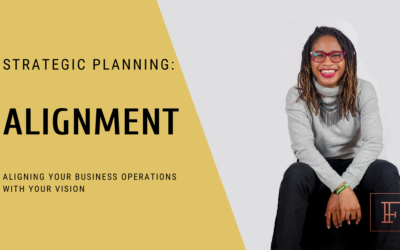Today we’re going to show you how to nail your coaching sessions, by explaining the 4 elements of a good coaching session whether it’s a paid session or a complimentary session.
Starting a new coaching business is both rewarding and oftentimes nerve-wracking. However, congratulations for finally taking that step, and starting your coaching business, irrespective of your niche, whether it’s health coaching, business coaching, life coaching, etc.
Now that you have your first “client”, whether it’s for a paid session or a free complimentary session, the next hurdle to tackle is the actual coaching session.
A good coaching session is conversational, not confrontational, and the client taking the leap to book that call with you, is already a huge sign of trust. You have to reward that trust by bringing your A-game, meeting their expectations, and teasing them with bits of what they could expect in their next session with you.
So, what are the elements of a good coaching session?
1. Establish The Focus of The Coaching Session or Package
Since you know that a good coaching session is conversational, then from the get-go, you need to establish what the topic of the conversation is.
The goal here is to establish the topic of the coaching conversation.
To avoid a chaotic conversation that is all over the place, make sure you and the client have at the very least a clear idea of what the coaching session will be about. This idea must be collaborative. As the coach, it’s not up to you to set a fixed goal for the session without input from the client.
This is why having the client fill a short form, either as they book the call, or before the start of the actual coaching session begins, is VERY critical.
Use tools such as CoachAcountable, Satori, Paperbell, or even Calendly.
To set the tone for the first session, try including questions such as the one below in the booking page or booking form:
- What are you struggling with?
- What would it look like for you if you had it all in this area?
- What have you tried so far?
- What made you decide to take this step forward today?
Having them fill this form as they book the call rather than later, gives you material to prep with before the coaching session.
At this phase of the coaching session the most important skills you NEED to utilize are:
- Understanding the issue they need help with
- Clarifying with the client to refine the focus of this session (To set a goal for the session, so to speak)
- Asking open-ended questions
- Using empathy to establish tone and common understanding
- Summarizing the information received from the client to make sure you are both on the same page
- Keeping the conversation future-focused, as opposed to focusing on the past
At this stage, It is very important that you seek confirmation from them on what the focus of the conversation would be.
2. Explore Your Client’s Need
Now that you have set the focus of the interview, it’s time to focus on the client themselves. The next element of a good coaching session is exploring the client’s needs.
Once you and the client have agreed to the goal of the session, it’s time to switch gears and begin exploring the reason why the client booked the call in the first place. What brought them here?
The goal here is to explore the client’s perspective, needs, values, and beliefs.
This is where we try to see things from the client’s perspective to have a deeper understanding of, and for the client. It is VERY important for you as the coach to maintain an attitude of curiosity and not judgment.
Keep your posture friendly and open as you explore our client’s perspective on their issues, needs, their beliefs, and their values.
At this phase of the coaching session the most important skills you NEED to utilize are:
- Listen actively, and show this by making motions such as nodding your head, saying things like ‘yes’, ‘I know what you mean’
- Ask open-ended questions
- Continually check that you understand what your client is saying, and that you do not misinterpret or misunderstand their words
- Acknowledge their feelings – verbally if possible
- Continually explore your client’s current perspective on what they are struggling with as well as look at things from alternative perspectives to better understand them
It is very important that your client feels heard and understood, and that they feel cared for, and in a safe environment.
Recommended: How To Understand And Connect With Your Future Clients
3. Clearly Outline Course of Action
Once you and your client have agreed on the focus of the coaching session, and the client has expressed their needs and frustrations, the next thing is to reassure them.
At this stage they need reassurance, they need to know that you are not all talk, and head nodding. They need to know that you have a plan to solve their problem.
They need an action plan, a course of action, a goal to work towards. Whatever you want to call it, but they need a roadmap towards the success they envision.
The goal here is to decide on a goal or course of action.
You can share short testimonials of clients you’ve worked with who had a similar issue, and how you solved it.
You don’t need to go in-depth with all your qualifications or give them a 2-page description of your background, odds are they’ve looked into you already while booking the session, or before the coaching session began.
A good coaching session is not a resume reading, or a reading of your company/personal profile. Your clients are more interested in themselves and what you can do for them.
Prove your competence to them having a clear roadmap that will take them from where they are to where they want to be. Set timelines, set expectations, milestones, and small wins.
At this phase of the coaching session the most important skills you NEED to utilize are:
- Maintaining focus on the outcome rather than on the issue or problem
- Ask open-ended questions. I cannot stress this enough. Ask questions, keep the conversation moving. A coaching session is a conversation, not a university lecture.
- Break big goals into smaller chunks
- Identify barriers to these goals and provide ideas on how they can overcome them
- Keep the conversation specific NOT vague. They did not commit their money and or time to listen to your vague or generalized comments.
As always keep the conversation moving, always pause to confirm if you and the clients are on the same page, or if there is something that they want to add.
Motivate them and let them know that the transformation they want is within reach, they just need to commit to putting in the work.
Paint a clear picture of the reward or transformation they will get at the end of their journey (The coaching package) with you.
PS: It’s definitely going to take more than your current session to solve their issue, hence why I said “coaching package”.
4. Closing The Coaching Session The Right Way
This far in the coaching session, you’ve made a lot of progress, and there is a lot that they need to digest and do (remember the roadmap in number 3 above).
Odds are there are a few things that they might have forgotten, and so it’s time to review or recap what you’ve discussed so far in your conversation.
You don’t want to abruptly end the coaching session, but instead review the focus of the conversation, their needs, their roadmap to success, and emphasize your support and commitment to giving them the transformation they seek.
The goal here is to have a review of learning in the session, establish accountability and re-emphasize your support.
Just as important as starting the coaching session on a high note, you also need to close the coaching session, in a way that reassures them that everything is okay… You’ve got their back.
At this phase of the coaching session the most important skills you NEED to utilize are:
- Summarizing/recapping/reviewing the session
- Asking open-ended questions to make sure that there is nothing they’ve missed, and you are both on the same page
- Establishing accountability and timelines on tasks, to make it clear what specifically will be done and when it will be done by
- Acknowledging your excitement to continue this journey with them, and the huge step they’ve made by committing to this
- Committing to anything that you will do as their coach to help them meet their goals
It’s always a good practice to take things one step further, and email them everything you’ve during the conversation, especially their tasks and timelines.
A good coach follows up after the end of the coaching session (often 1-3 hours after), by sending the client session notes often in the form of bullet points, recapping the major highlights of the coaching session.
If like me, you use CoachAccountable, you can easily do this right from your coaching portal. Alternatively, you can just send them a regular email with the session notes you wrote down as the call progressed.
And now you know the 4 elements of a good coaching session. These actionable tips will take your coaching sessions from meh, to having your clients look forward to each session.
The goal of these tips is to help you become a better, more efficient coach, and to make each session not just good for you, but for your clients as well. So go out and deliver the best coaching session ever! You’ve got this.
Now that you know how to nail your coaching session, let’s focus on your business strategy as a coach. specifically:
- Your Business Premise
- Your coaching brand foundations
- How money will go in and out of your coaching business
- How to structure your coaching business around your strengths, and experiences whether professional or personal
Join us this month in our half-day business strategy workshop for new coaches. This is a live interactive workshop held on zoom monthly and is open to 20 participants only.
This way we can work on each of the four steps above, in a way that is specific to your business. All examples, strategies, tactics, and action items discussed will be tailored to your coaching business.
>> Claim your spot NOW, to set up a solid foundation for your coaching business.





0 Comments